How an inflated ego led to the destruction of one of the 7 wonders of the world
The temple of Artemis in Ephesus was considered one of the seven wonders of antiquity. Here he appears in the 'Wonders of the Past' illustration from 1933-1934
The temple of Artemis was the pride of the inhabitants of Ephesus.
The polis, or independent city-state of ancient Greece, was close to what is now the port city of Smyrna in Turkey. And the patroness of Ephesus was Artemis, the goddess of hunting, wild animals, virgin lands, births, maidens, and virginity.
According to the Greek historian Herodotus, the temple had been built with resources from the extraordinarily rich King Croesus of Lydia and, according to the Roman Pliny, had 127 columns, 36 of which were finely carved with relief drawings.
At the center of what was one of the greatest Greek temples in history and the first built almost entirely of marble, was the colossal figure of Artemis, made of blackened woodt was a marvel... One of the seven in the ancient world, which left even the Antipater of Sidon, the author of the famous list, breathless: "I laid my eyes on the wall of sweet Babylon, which is a sidewalk for carriages, and the statue of Zeus of Alphaeus, and the hanging gardens, and the Colossus of the Sun, and the great work of the high Pyramids, and the vast tomb of Mausolus: but when I saw the house of Artemis, there among the clouds, those other wonders lost their shine, and I said: 'beyond Olympus, the sun has never seen anything so grand.'
In addition to its religious purposes, the building was a magnet that attracted tourists, merchants and even kings who paid tribute by offering various jewels and other treasures. It also served as a protection to the persecuted, because no one would dare to do anything that could defile the temple.
But on July 21, 356 BC, a catastrophe occurred.
In July 356 BC a man decided to burn down the time of Artemis of Ephesus for the sole purpose of gaining fame from it.
According to the Greek historian Plutarch, while the goddess Artemis was absent from the sanctuary, assisting in the birth of Alexander the Great, also known as Alexander the Great, a man named Herostratus deliberately burned the temple that had taken a century to build.
But why?
It was a tragedy. In one night, all that existed of wood—the ceiling, the stairs, the doors, the furniture, and the beloved image of Artemis—burned in the flames and appeared reduced to ash the next morning.
All that was left of the temple that had been the most magnificent in Greece were smoky, blackened, and ruined columns. Herostratus was quickly arrested and confessed that he had burned the sanctuary so that, "through the destruction of this beautiful building, his name would spread throughout the world", according to a report by Valerio Máximo, author of the Factorum et dictorum memorabiliumcollection (Feitos e memorable sayings).
Because of the infamous act, in addition to being tortured and executed, Herostratus was punished by oblivion through what later came to be called damnatio memoriae —literally "memory condemnation."
Any record of his existence was removed and the mere mention of his name was prohibited under penalty of death.
Herostratus ended up having his fame guaranteed, having the name mentioned in works of literature and history
For a time, the measure was followed, but eventually Herostratus achieved his goal.
Despite the damnatio memoriae decreed, the contemporary historian Theopompus mentioned the name of the arsonist in a work written in the same century. So, although we know little about Herostratus, he has never been forgotten.
more than remembered
In fact, more than remembered for what he did, Herostratus jumped from the history books to other realms. In literature, several great names such as Victor Hugo, Anton Chekhov, Jean-Paul Sarte, Miguel de Unamuno and even the ingenious Don Quixote de La Mancha, character of Miguel de Cervantes, violated the "condemnation of memory".
In Chaucer's unfinished dream poem "The House of Fame" from the 14th century, Herostratus is shown presenting his case to the muse Calliope, who listens to his pleas in the court of fame.
Currently, only a few pilasters remain in the place where the temple of Artemis once stood
When the muse of poetry asks why he destroyed the temple, Herostratus replies that he wanted to be famous as were other people whose fame was due to virtue and strength.
In this sense, it occurred to him that bad people were as famous for their wickedness or wit as good people for their kindness. So, to ensure that he had some sort of fame, he decided to burn the temple down.
When he asks for his fame to be proclaimed to the four winds, the muse replies "with pleasure."
And Herostratus is not only alive in the world of fiction, but also in the world of science. The "Herostratus complex" is a term used in modern psychiatry for people who suffer from a feeling of inferiority but who want to excel at all costs.
To achieve this end, they resort to aggressive actions, such as destroying art objects, public assets, socially useful objects and torturing or killing animals or people.
Reconstruction
The temple of Artemis was depicted in an illustration by Maarten van Heemskerck in 1572.
The residents of Ephesus began the long task of rebuilding the temple on the original cement shortly after the tragedy. Years later, they warmly welcomed the one born from the ashes of the goddess's sanctuary, Alexander the Great.
He triumphantly entered Ephesus after defeating Persian forces at the Battle of Granicus in 334 BC, liberating the Greek cities of Asia Minor.
But when the heroic conqueror offered to pay all the expenses of rebuilding the sanctuary, the inhabitants of Ephesus were faced with a dilemma: they didn't want to be indebted to the Macedonian, but how could they refuse the help of someone so powerful?
They came out of this with a diplomatic phrase that has become one of the most famous in history: "It is inappropriate for a god to make offerings to other gods."
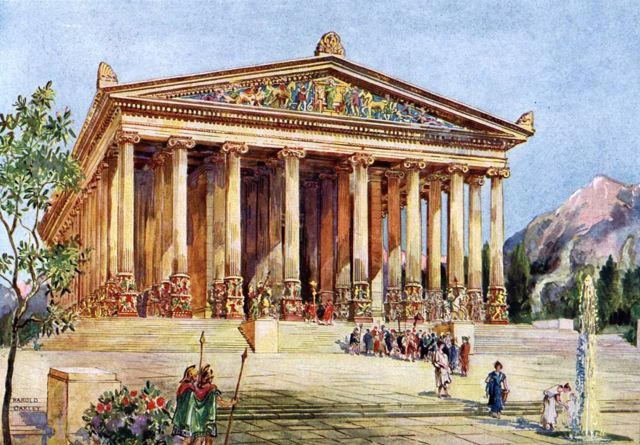
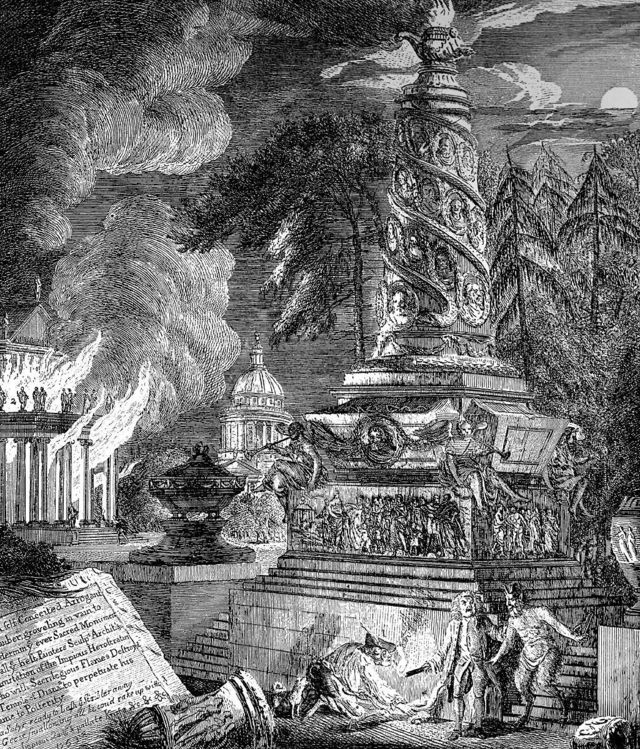
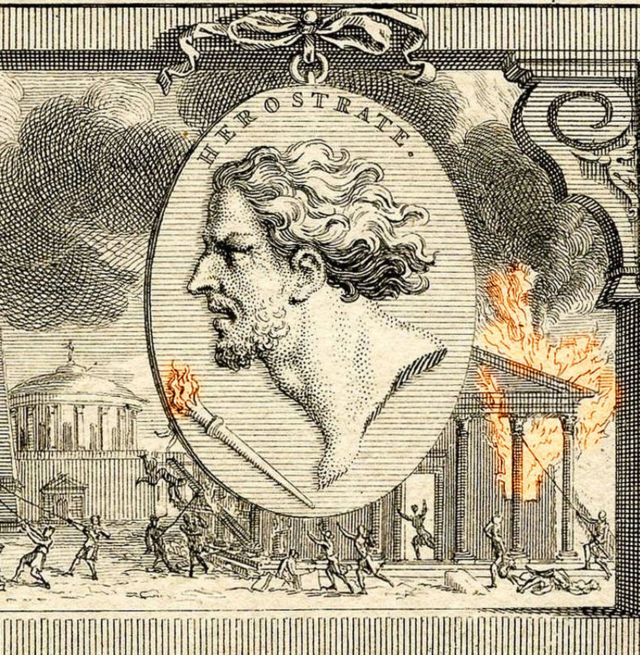
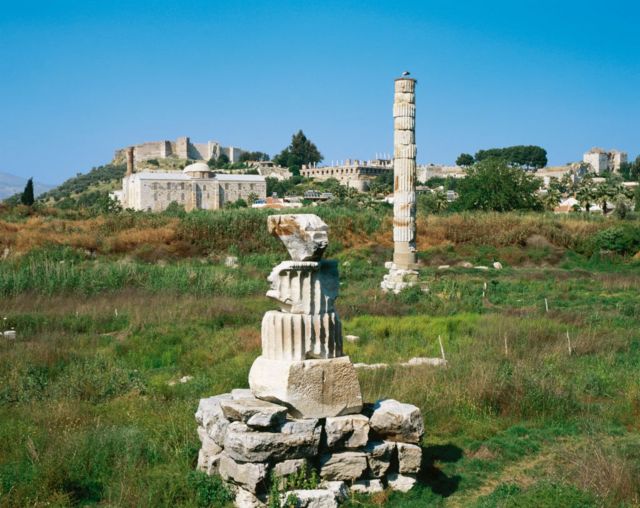
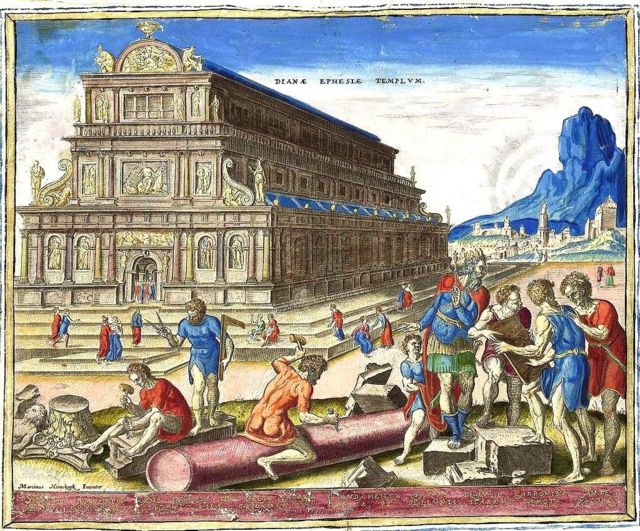

No comments:
Post a Comment